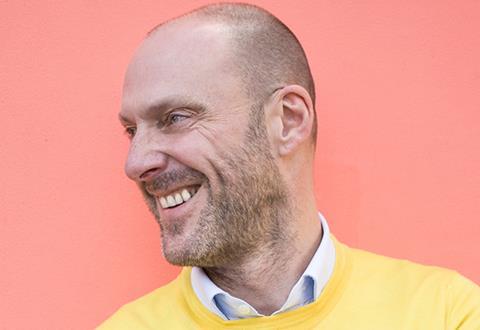A rising generation are facing a new set of challenges and expecting more from work and life, writes Martyn Evans

Somebody once said to me that, when you get to a certain age and seniority in your business, your priority should be to hire the cleverest young people and get the hell out of the way. I don’t think that’s bad advice.
It is the mark of a good senior manager to recognise when those half your age know more about the world as it is today than you do.
The conversations that I had with my father about my work when I was young and ambitious would frustrate me terribly and still ring in my ears as I sit in meetings (or, more likely on Zoom calls) talking to the clever young people in my company. I can see it written all over their faces when I make bad “dad jokes”.
They are very polite, but I can tell they are trying as hard as they can not to roll their eyes at a joke that is not even funny…
Why are we not pushing young people front and centre, listening to everything they have to say and acting accordingly – sometimes against our better judgment?
Architecture and development is a long game. The first time we sit in a room together on projects the size of the ones I work on, it could be five years before anyone is working or living in the buildings we are gathered to plan. It is the future that we are building for.
So, why are we not pushing young people front and centre, listening to everything they have to say and acting accordingly – sometimes against our better judgment?
It was in support of the young people of our industry that Jane Duncan, then president of the RIBA, and I set up YADA – the Young Architects and Developers Alliance. I had spent far too long banging middle-aged heads together in meetings between my developer colleagues and their architects trying hard to get them over the Mars and Venus issues that characterise their relationship.
I am often asked to be a guest lecturer to architecture and estate management students. What I realised from talking to the young people I meet was that the problem started early.
I asked the architecture students when they last saw a development appraisal? No hands. The young surveyors – when did you last have a tour of a Stirling Prize-nominated building by its architect? No hands.
So, right from the start they learn to talk different languages. As they grow in their careers it only gets worse, perpetuating the mutually disastrous situation where architects characterise developers as philistines who would not know a good design if it hit them between the eyes and developers describe architects as dreamers with their heads in the clouds.
Covid has delivered a radically different world from the one we were used to. My young colleagues say it is a better one
The young people of our industry have more in common today than they ever did when I was one of them – they are all suffering the same problems: affordability of living; mortgages ever-more out of reach; a climate crisis that we, the older generation, have bequeathed them; and a pandemic that tore companies apart.
Jane and I created a place where young people from the development and architecture industries could come together, talk and share ideas over a drink after work. We booked a space in a pub and thought we would be happy if 30 people turned up.
Nine hundred young people applied for tickets, so we had to have a quick, radical rethink. With a bit of a hiatus through lockdowns, those events continue, supported brilliantly by architecture practices and development companies across London. This year we will expand to Manchester.
Communication and mutual understanding aside, covid has delivered a radically different world from the one we were used to. My young colleagues say it is a better one. Though a considerably more economically challegened world, they talk passionately about the increased quality of life that flexible working arrangements have allowed them.
But a recent Sunday Times article by Roisin Kelly asked: Are Gen Z really a bunch of workplace slackers? It quoted a 2022 survey by King’s College, London which found that the UK public were three times as likely to say that younger workers are less motivated and hardworking than older workers.
This is not my experience. The young people in my company work hard. If they are a little more vocal when their quality of life is impacted by work demands, is that entitlement or self-care? Kelly suggests that it is about setting and maintaining clear boundaries – responding to headwinds and redrawing the economic contract.
As employers, we have to ask ourselves whether happier, calmer young colleagues are really less productive than those who stay too late in the office, read and respond to their emails at weekends and feel much less in control of their work/life balance. We have to be very careful that we don’t confuse “they don’t know the meaning of hard work” with a responsibility that not many of us would argue with to provide our teams with happy, fulfilling and inspiring work.
FDR once said, “We cannot always build the future for our young people but we can build our young people for the future”. That’s not a bad Post-it note to stick on your laptop.
Postscript
Martyn Evans is creative director of U&I
















No comments yet